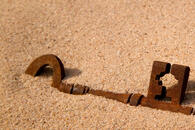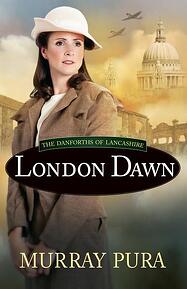 When I’m researching a historical novel I go through all sorts of information in a book, at a library, or on a website. Sometimes hours can go by as I wade through words looking for something relevant and, hopefully, fascinating and unusual, a scrap of info I can use to liven up my story. Of course if you knew exactly what you were looking for it might not take so much work, but the digging is part of the fun. And the digging always pays off.
When I’m researching a historical novel I go through all sorts of information in a book, at a library, or on a website. Sometimes hours can go by as I wade through words looking for something relevant and, hopefully, fascinating and unusual, a scrap of info I can use to liven up my story. Of course if you knew exactly what you were looking for it might not take so much work, but the digging is part of the fun. And the digging always pays off.
Take my latest novel with Harvest House Publishers for instance, London Dawn. I thought I had a pretty good idea of what happened during the Berlin Olympics—but research showed me Jesse Owens won one of his gold medals because a Nazi athlete befriended him and showed him how to improve his broad jump. I wonder what Hitler thought of that!
I also felt I had a pretty fair idea of what happened during the Battle of Britain and the Blitz—but, on the one hand, I didn’t know how close the RAF fighter pilots were to the snapping point from combat fatigue (very close) before Hitler abruptly shifted tactics and sent the Luftwaffe hurtling toward London with their bombs. And, on the other hand, I didn’t know how the Tube (London’s subway) was initially off-limits to Londoners, and how they refused to comply and descended into the subway tunnels en masse each night to find shelter from the rain of Nazi bombs.
Again, I thought I had the Royal Navy’s hunt for the Bismarck pretty well nailed down. This was an epic sea chase I’d known about since I was a boy and it’s part of the London Dawn story. But the more I read, the more I learned—what ships pursued the great German battleship after it had sunk HMS Hood, which torpedo plane attack snarled the battleship’s rudder, who closed in to sink the powerful ship, how long it took, how many shells were fired. Yet the greatest surprise came when I was writing a prayer for one of my heroes who is on the deck of a ship closing in on the Bismarck.
Members of his family had been killed by the German battleship’s guns, and he was well aware of how much more destruction the Bismarck was capable of inflicting if it escaped. He was not even sure they would be able to defeat the great ship or if its powerful shells would send them to the bottom of the sea. As I was working on his prayer I wondered if anyone famous had written or spoken a prayer before an important naval battle. Impromptu in-the-middle-of-writing-the-scene research turned up something I had never known before—Lord Horatio Nelson had done this very thing on the morning of October 21, 1805, hours before the world-changing Battle of Trafalgar. I immediately changed tactics and put the prayer in my hero’s hand—the hand of a man who was also a father and who didn’t know if his son was dead or alive.
May the great God, whom I worship, grant to my country and for the benefit of Europe in general, a great and glorious victory. And may no misconduct, in anyone, tarnish it. And may humanity after victory be the predominant feature in the British fleet. For myself individually, I commit my life to Him who made me, and may His blessing alight upon my endeavors for serving my country faithfully. To Him I resign myself and the just cause which is entrusted to me to defend. Amen. Amen. Amen.
Edward then lifted his head to the sky and let the wind and water lash his face. “And please, God, I ask You for my son.”
You never know where your historical research will take you or how it will change the stories you write!

See how Murray Pura incorporates this research in his latest historical novel, London Dawn.


